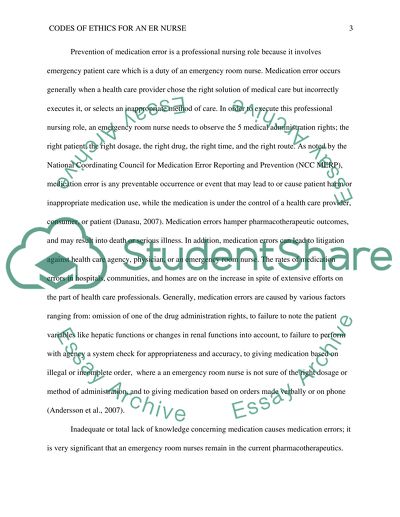Cite this document
(“Codes of ethics for an ER nurse Term Paper Example | Topics and Well Written Essays - 1250 words”, n.d.)
Retrieved from https://studentshare.org/health-sciences-medicine/1469265-codes-of-ethics-for-an-er-nurse
Retrieved from https://studentshare.org/health-sciences-medicine/1469265-codes-of-ethics-for-an-er-nurse
(Codes of Ethics for an ER Nurse Term Paper Example | Topics and Well Written Essays - 1250 Words)
https://studentshare.org/health-sciences-medicine/1469265-codes-of-ethics-for-an-er-nurse.
https://studentshare.org/health-sciences-medicine/1469265-codes-of-ethics-for-an-er-nurse.
“Codes of Ethics for an ER Nurse Term Paper Example | Topics and Well Written Essays - 1250 Words”, n.d. https://studentshare.org/health-sciences-medicine/1469265-codes-of-ethics-for-an-er-nurse.


